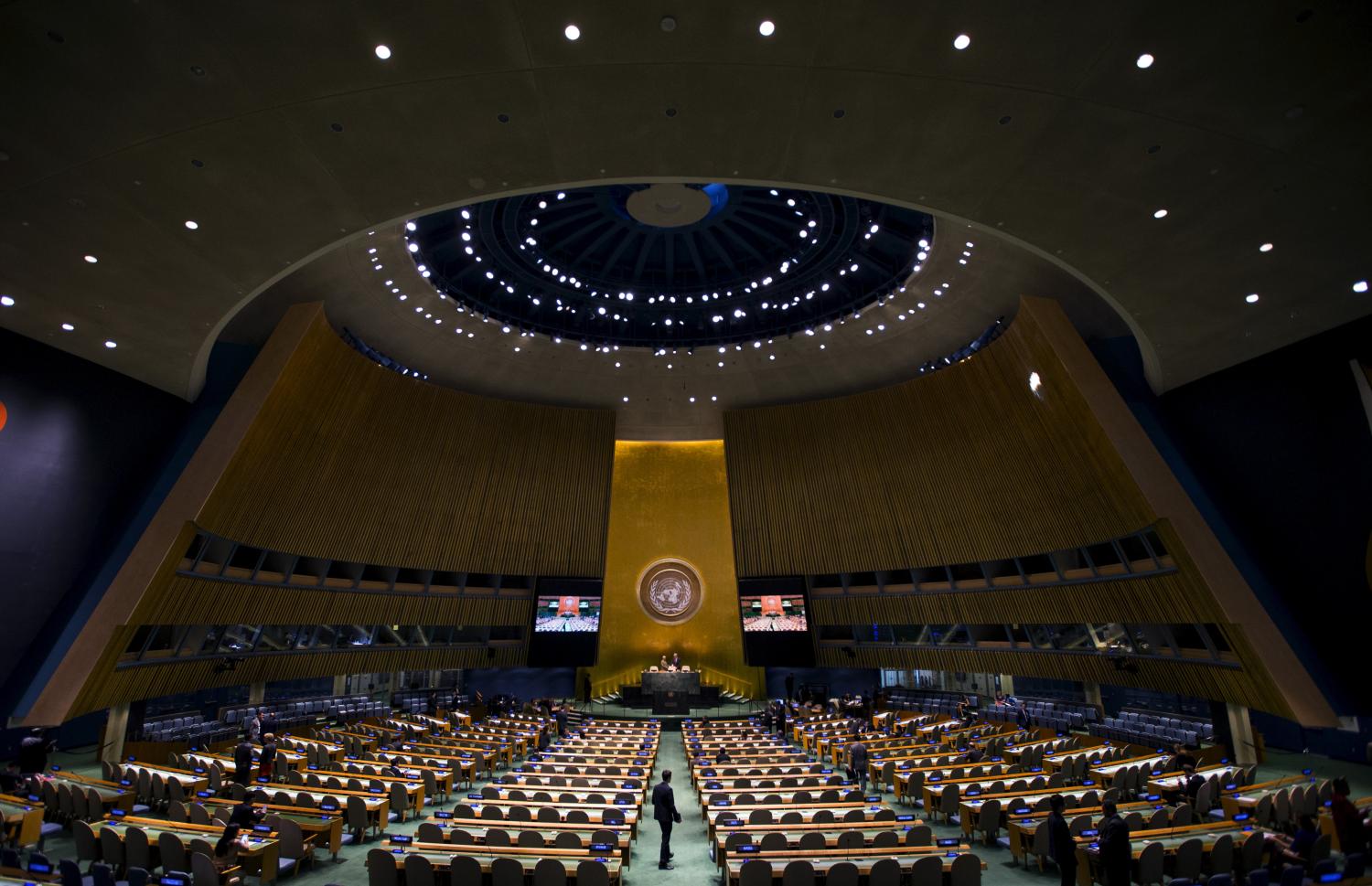Introduction and Summary
Ukraine and Ukrainians will be tested over the course of 2009. The global financial and economic crisis already has provoked a deep recession and falling living standards. Kyiv will need to make a real effort to strike a balance between integration into Europe and the Euro-Atlantic community and maintaining stable relations with Russia. Doing so will not be easy, as Russia regards Ukraine’s pro-Western policy as inimical to Russian interests, and Ukraine’s politics are subject to influence from Moscow. In particular, Ukraine must address its energy security situation, where it remains vulnerable to Russian pressure.
Ukraine is the most democratic state in the post-Soviet space, and its domestic debate is vibrant and open, but its politics are highly dysfunctional. The bitter political feud between President Victor Yushchenko and Prime Minister Yuliya Tymoshenko, former allies in the Orange Revolution, has paralyzed most policymaking. With a presidential election likely to be held in January 2010, the infighting will only get worse. Regions Party head Victor Yanukovych, the main opposition leader, has little incentive to work for good policies, as he stands to gain politically as disapproval of the president and prime minister grows.
All of this makes dealing with Ukraine difficult for the U.S. government, but it also makes working with Ukraine more urgent. It remains in America’s interest that Ukraine continue its development as a stable, independent, democratic market economy, with growing links to Europe and the Euro-Atlantic community. In the circumstances of the coming year, however, engaging with Kyiv to advance that goal will prove no easy task.
Washington may be tempted to wait for the leadership in Kyiv to get its act together, given how divided it is. Certainly, President Barack Obama and his administration have plenty of competing demands on their foreign policy plate. But Washington does not have the luxury of waiting; absent strong U.S. engagement, the situation in Ukraine will likely worsen and require greater American attention at a future point. In order for the U.S. government to engage successfully, Ukrainian leaders must overcome some of their divisions, adopt a more coherent policy approach, and be prepared to take difficult decisions. Serious engagement by Washington, however, is necessary to press Ukraine’s leaders to adopt such an approach. They are unlikely to do so on their own.
As it organizes its policy toward Ukraine, Washington should focus on four areas:
Structure a bilateral dialogue to have maximum influence with Ukraine’s leaders. The Obama administration should establish a regularized, toughminded dialogue with Kyiv. It needs to send an early high-level message, perhaps delivered by Secretary of State Hillary Clinton, of support and the need for Ukraine’s leaders to cooperate with one another; she might travel with European Union (EU) Common Foreign and Security Policy High Representative Javier Solana to convey a joint U.S.-EU message. The administration should revive the binational commission that operated between 1996 and 2000, with the vice president chairing the U.S. side and Yushchenko and Tymoshenko co-chairing the Ukrainian side, if that can be made to work. Such a mechanism can deepen the U.S.-Ukrainian relationship, monitor progress on agreed bilateral priorities and the December 2008 U.S.-Ukraine charter, and pass candid messages on sensitive issues. U.S. officials must be blunt: if Yushchenko and Tymoshenko cannot work together, U.S. efforts to help Ukraine cope with the economic crisis, strengthen its energy security, or develop closer relations with Europe will yield minimal results.
Assist Ukraine in dealing with the financial/economic crisis. Ukraine needs to be and stay in compliance with its International Monetary Fund (IMF) program. Even with help from the IMF, Ukraine will likely face a financing gap in 2009 of about $5 billion. The U.S. government should work with partners such as the European Union, IMF, World Bank and others to address this as a matter of priority, with the objective of a donors’ conference that would provide $5 billion in additional financing this year. This should be linked to the established IMF standby arrangement and should have conditions that also link the additional financing to specific energy sector reforms. The U.S. government should consider providing financing as part of this. Washington should also press Ukraine to resume making vitally important economic reforms to position its economy for a faster recovery, and should consider reducing trade barriers to Ukrainian products.
Promote serious actions to strengthen Ukraine’s energy security. Ukraine’s leaders know what they need to do to improve the country’s energy security situation but have steadfastly refused to act. Senior U.S. officials now must impress on them that there is no alternative but to push through reforms that have been thwarted by entrenched vested interests. These reforms include allowing energy prices to consumers to rise, at least to cost-recovery levels, in order to promote energy efficiency and domestic production. Washington should continue programs to promote energy efficiency and advise the Ukrainian government on developing a program of targeted welfare assistance for those unable to pay the higher prices for energy. Given the inherent instability of the January 2009 gas agreements with Russia, the U.S. government and its European partners should undertake a systematic assessment of measures to help stabilize, strengthen, and increase the transparency of the gas operations of Naftohaz, the parastatal oil and gas corporation.
Help Ukraine deepen its relations with the European Union and NATO while avoiding a crisis with Russia. The administration should encourage the European Union to accelerate conclusion of the negotiation underway with Ukraine on an association agreement, including a free trade arrangement. Washington should lead in shaping NATO-Ukraine relations. Given the impossibility of securing Alliance consensus for a membership action plan (MAP), U.S. officials should assist Ukraine in developing an annual national program that contains most, if not all, of the content of a MAP, and work within the Alliance to secure approval of the program. Washington should be clear with Kyiv on how much support it can expect in a stand-off with Russia while cautioning Moscow that Russian efforts to destabilize Ukraine will risk its relations with the West.
This paper briefly discusses U.S. interests in a successful Ukraine and describes four key challenges currently facing Kyiv. It then discusses in more detail the above policy recommendations for strengthening U.S.-Ukrainian relations and for helping Ukraine to meet these challenges and continue its transformation into a modern, successful European democracy.
The Brookings Institution is committed to quality, independence, and impact.
We are supported by a diverse array of funders. In line with our values and policies, each Brookings publication represents the sole views of its author(s).





